EAPLS PhD Award: Expert Committee
Eerke Boiten, University of Kent, U.K.
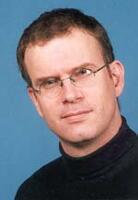
Eerke Boiten received his PhD in specification and transformation of programs, Nijmegen (NL) 1992.
He is now working as a Senior Lecturer at Kent (UK) in formal methods
(Z, process algebra, relations),
particularly refinement, viewpoint specification, and more recently
working towards cryptography. He supervised 3 PhDs, and examined
several more. He is organiser of the Refinement workshop series, and a
long-standing member of Mathematics of Program Construction and
Integrated Formal Methods communities. He is an editor of the Formal Aspects of Computing journal, and leads the UK CryptoForma network on Cryptography and Formal Methods, as well as the University of Kent's Cyber Security centre.
Mark van den Brand, Universiteit Eindhoven, The Netherlands
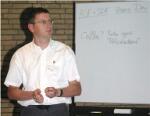
Mark van den Brand is a full professor of Software Engineering and
Technology at TU/e in the Department of Mathematics and Computer Science.
He is scientific director of the research laboratory LaQuSo.
His current research activities are on generic language technology,
model driven engineering and reverse engineering. He was keynote speaker at
the Software Language Engineering (SLE2008) conference
which combines the research fields of model driven engineering and language technology.
He was and is member of PCs on workshops and conferences related to software
engineering, language engineering, rewriting, reverse engineering and maintenance.
He initiated the special issues of Science of Computer Programming devoted to academic
software development (Experimental Software and Toolkits (EST)), and was four times
guest editor (2007, 2008, 2009, 2011) of these EST special issues. Since
May 2009 he is visiting professor at Royal Holloway, University of London.
He is member of the editorial board of the journal of Science of Computer Programming,
Central European Journal for Computer Science, and Journal of Software Engineering and
Applications. He is invited as lecturer at SFM-12:MDE 12th International School on Formal
Methods for the Design of Computer, Communication and Software Systems: Model-Driven
Engineering in Bertinoro. He is president of European Association of Programming Languages
and Systems.
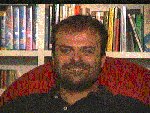
Paolo Ciancarini is
Professor of Computer Science at the University of Bologna, where he
lectures on Software Architecture and Engineering in the Faculty of
Sciences. He is member of the Faculty of the PhD School in Computer
Science and since 2008 chair of the Joint Schools in Computer Science
and Technologies at the University of Bologna Alma Mater. He is also
member-at-large of the Faculty of Computer Sciences and Technologies at
the IMT Institute of Advanced Studies in Lucca. He is since Dec 2006
the Director of the Consorzio Interuniversitario per l'Informatica
(CINI), a national consortium of 34 Italian universities, whose mission
is basic or industry-oriented research projects on Information and
Communication Technologies.
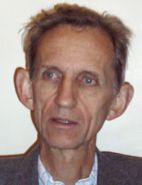
Stefano Crespi Reghizzi is a professor in the Dipartimento di Elettronica e Informazione of Politecnico di Milano. In the course of a scientific life devoted to computer science, he has participated and contributed to several research initiatives that have punctuated the advances of this discipline: the ARPA network (later to become Internet), developments of early programming languages, formal models of artificial and to some extent of natural languages, language acquisition algorithms, picture languages, microprocessor technology, and languages and language translators for parallel processing. His current research interests are centred on the theory of formal languages and automata and on their applications in various directions of interest for engineering and natural sciences.He has written many scientific papers and the textbooks Linguaggi formali nelle scienze della comunicazione and Formal languages and compilation.After graduation in Electronics Engineering at Politecnico di Milano,, he received the Ph.D. in Computer Science from University of California at Los Angeles, then was appointed as professor by Università di Pisa. For many years he has chaired the PhD programme in information technology at Politecnico di Milano.
Kei Davis, Los Alamos National Laboratory, U.S.A.
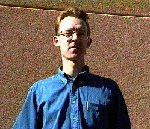
Kei received his M.Sc. in
Computation in 1988 from Oxford University and Ph.D. from Glasgow
University in 1994, both in topical areas of functional programming,
specifically formally-based program analysis and transformation.
For the last 15 years he has worked as a computer scientist at Los
Alamos National Laboratory in a variety of areas including functional
language implementation, object-oriented design and implementation,
system/application performance analysis and modeling, systems, and
exploitation of accelerated architectures, all in the context of
large-scale parallel computing.
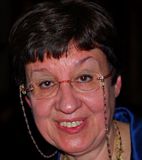
Mariangiola Dezani is full professor of at the University of Torino since 1981. She is member of IFIP W.G.2.2 and of the "Academia Europaea". She is editor of "Information and Computation" and of "The Computer Journal". Her research followed a clear path since the beginning, proposing typing systems along the evolution of programming languages: from lambda-calculus models in the 80's, to object orientation in the 90's, to more dynamic and distributed contexts with behavioural types for web services. Her current research activity is mainly devoted to the study of behavioural types for assuring safety and liveness of communication protocols and the design of type systems for expressing properties of biological systems.
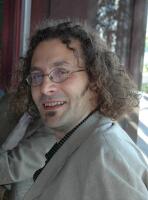
BSc Physics,
University of Basque Country (Bilbao, Spain), 1985. PhD
Informatics/Computer Science, University of Deusto (Bilbao, Spain),
1996. Assistant professor 1987, associate professor 2000, University of
Deusto. Formerly Head of the Department of Computing, Engineering
Faculty, University of Deusto (2005 to 2012). Supervised 3 PhD theses,
presented 1999, 2004 and 2004 (last two in collaboration with other
colleagues).
Marko van Eekelen, Radboud University Nijmegen and Open Universiteit, The Netherlands
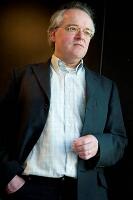
Marko van Eekelen did
his Ph.D. in Computer Science in 1988 in Nijmegen under supervision of
Professor Barendregt. His research area is in the application of formal
methods for Software Analysis, varying from correctness of functional
properties to verification of non-functional properties such as
liveness and resource consumption. He is scientific director of the
Nijmegen Laboratory for Quality Software (LaQuSo) and he is chairing
the Steering Committee of the Trends in Functional Programming
Symposium series which particularly encourages young researchers to
present their work. Furthermore, he has been lecturing at several Ph.D.
schools. For more info on his scientific publications and Ph.D.
supervision experience see http://www.cs.ru.nl/M.vanEekelen.
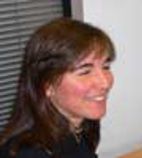
Maribel Fernandez is Professor of Computer Science at King's College
London. She obtained her PhD in 1993 from the University of Paris-Sud,
and her Habilitation in 2000 while she was a Maitre de conference
at the Ecole Normale Superieure in Paris. Her research interests
include computation models, specification and programming languages,
and the development of tools for the analysis and verification of
complex systems. Her expertise is in type systems, semantics and
foundations of security, using rewrite-based techniques (term and
graph rewriting, and lambda-calculus).
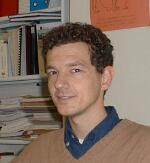
Giorgio Ghelli is Full
Professor in Computer Science, at Pisa University, since September
2002. He was Visiting Professor at Ecole Normal Supérieure Paris
(1993), at Microsoft Research Center, Cambridge (UK) (1998), and at
Microsoft Co. (Redmond, USA, 2005). His research interests are: design
and implementation of database languages; type theory, and its
application to the previous theme; foundations of object-oriented
languages; languages and peer-to-peer systems to query semi-structured
and XML data. He has been advisor for five PhD students and part of the
evaluation committee of more than ten PhD thesis, in different European
countries.
Stefan Gruner, University of Pretoria, South Africa

Stefan Gruner received
his MSc (Dipl.-Inf.) in the year 1996 and his PhD (Dr.rer.nat.) in the
year 1999, both from the RWTH Aachen, Germany. As far as progamming
languages -the theme of EAPLS- are concerned, Stefan Gruner's work so
far has always been more on the software engineering side and less on
the side of theoretical informatics. For his MSc, Stefan Gruner did an
empirical study on the benefits of deforestation in the context of
functional languages; (supervisors: Peter Hartel and Herbert Kuchen).
For his PhD, Stefan Gruner dealt with graphical languages for software
system specifications; (supervisor: Manfred Nagl). During his Post-Doc
time at the university of Southampton, Stefan Gruner made contributions
to the implementation of a partial evaluation system in PROLOG;
(project leader: Michael Leuschel). More recently at the University of
Pretoria, Stefan Gruner has contributed to the development of a new
operator for optional parallelism in the process specification language
CSP; (project leader: Derrick Kourie). In his role as Senior Lecturer
and manager of the SSFM research group at the University of Pretoria,
Stefan Gruner is currently supervising 4 PhD-students (May Chan, Johan
van Zyl, Mushtaq Ahmad and Fritz Solms) in the area of Software
Engineering and Formal
Methods. Stefan Gruner also acted as External Examiner to several other
PhD-candidates, most notably for the University of Bordeaux (France) in
the area of distributed systems specifications. Stefan Gruner is not
only a member of EAPLS, but also of EASST and FME since many years.
Kevin Hammond, University of St Andrews, U.K.

Kevin Hammond is a Professor in Computer Science, in the School of
Computer Science, at the University of St. Andrews, St. Andrews,
Scotland, where he leads the Functional Programming research group.
He is also an Honorary Professor at Heriot-Watt University, Edinburgh,
Scotland. His main interests are in cost modelling, parallelism and real-time
and embedded systems.
Martin Hofmann, Ludwig-Maximilians-Universität München, Germany
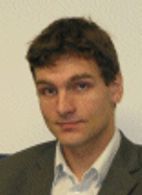
Martin Hofmann received his PhD in type theory and formal verification, at the Univesity of Edinburgh in 1995. His topic was extensional constructs in intensional type theory and explored ways for improving the way type theory based proof assistants deal with equality. Since 2001 he is a full professor at the Institute of Informatics at LMU Munich and heads the Theoretical Computer Science group. His current interests are in type-based verification and certification, in particular type-based resource analysis. He also studies interactions between programming languages and computational complexity. Martin has supervised 10 PhD theses and was invited lecturer on several international PhD schools, e.g. Marktoberdorf and Palmse. He is a founding member and site leader of the PUMA graduate programme ("analysis of programs and models", puma.in.tum.de) run jointly between Technical University Munich and LMU Munich and funded by the German Research Association.
Paul Klint, CWI and University of Amsterdam, The Netherlands

Paul Klint is
head of the software engineering department at Centrum
Wiskunde & Informatica (CWI, the Dutch national research center for
computer science and mathematics) and professor in computer science
at the University of Amsterdam. He is also founding-president and now
treasurer of the European
Association for Programming Languages and Systems (EAPLS), former chair
of
the national advisory boards on Computer Science and co-founder of
the Software Improvement Group (SIG), a CWI spinoff company. He holds a
MSc in Mathematics from the
University of Amsterdam (1973) and a PhD in Computer Science from the
Technical
University Eindhoven (1982). He (co)authored three books and has
published over hundred scientific articles. He was advisor of over 30
dissertations and over 100 master's theses. He has consulted for
companies and governments worldwide. His research interests include
generic language technology, domain-specific languages,
software renovation, and technology transfer. Download his favourite
software from
http://www.rascal-mpl.org
and
http://www.meta-environment.org.
Jens Knoop, Technische Universität Wien, Austria
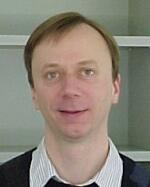
Jens Knoop is a full professor at the Faculty of Informatics at the Vienna
University of Technology, Austria. He is the managing director
(Institutsvorstand) of the Institute of Computer Languages and the head of
the group Programming Languages and Compilers. He has previously held
positions at the universities of Hagen, Dortmund, Oldenburg, Passau, and
Kiel, Germany. His research interests include programming languages and
compilers with an emphasis on formal methods, tools and algorithms for
static analysis, verification, optimizing and verifying compilation for
high-performance and real-time computing, general purpose and embedded
processors and systems.
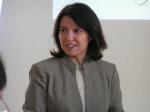
Tiziana Margaria has broad experience in the application of formal methods
for high assurance systems with an emphasis on functional verification,
reliability, and compliance of complex heterogeneous systems. Her
experience was obtained through major industrial projects where she won
the European IT Award in 1996, and a start-up competition in 2001, through
many consulting engagements, and as founder and CEO of startup companies
including METAFrame Technologies GmbH and miAamics GmbH.
Her current research focuses on advanced service engineering techniques
supporting reliability and compliance through a model-driven version of
service-oriented development called xMDD (eXtreme Model Driven Design)
and the embedding of selected formal methods in the development platform.
Greg Michaelson, Heriot-Watt University, Edinburgh, U.K.
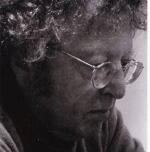
Greg Michaelson is Professor of Computer Science at Heriot-Watt University in Scotland and a member of the EAPLS Board. His research lies in the broad area of formally motivated computing with a strong focus on the design, implementation and analysis of functional programming languages for multi-processor systems. Most recently, he has been collaborating on critiques of proposed formal and physical models of computability that attempt to transcend the limits of Turing-complete systems.
Alan Mycroft, Cambridge University, U.K.
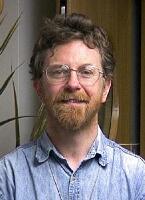
Alan Mycroft is Professor of Computing in the
Computer
Laboratory of
Cambridge University;
he is also a fellow at
Robinson
College. At
the Computer Laboratory he is part of the
Cambridge
Programming Research Group.
His research interests span an arc from semantic
models of programming languages to actually building optimising
compilers.
A core interest is that of static analysis of programs to
extract properties of their run-time behaviour. Such properties can be
used to enable optimisations or to facilitate ``compile-time
debugging''. His PhD created the subject of ``strictness analysis''
when he argued that apparent run-time inefficiencies in modern
high-level languages can often be removed by program analysis and
optimisation phases. Other work has encompassed type-based
decompilation and also language and compilation issues for ``Silicon
Compilers'', i.e.\ compiling specifications directly to hardware.
In 2005/06 he held a ``Visiting Faculty'' position with
Intel
Research Cambridge
involving developing languages
and techniques for compiling to `multi-core' processors; this
research illuminates the benefits of type-like systems of program
analysis at enabling programmers to express and manage their implicit
treaty with a compiler
(``optimise as much as you can, but don't step over the line'').
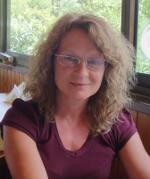
Catuscia
Palamidessi got his PhD in Computer Science at the University of Pisa.
She has been professor in Computer Science at the University of Genova
(Italy) and at Penn State University (USA). Currently she is Director
of Research at INRIA (France). Her research interests include the
Foundations of Programming Languages, Concurrency Theory, Probabilistic
Aspects of Computation, Expressiveness of Concurrent Formalisms, and
Computer Security Foundations. She is particularly active in the
communities of CONCUR, FOSSACS, ESOP, ICALP Track B, QEST. She
has supervised several PhD students, particularly in the domains
of Process Calculi, Probabilistic Formalisms, and Probabilistic
and Information-Theoretic approaches to Anonymity and Information Flow.
Ricardo Peña, Universidad Complutense de Madrid, Spain

Ricardo Peña is a full Professor in Computer Science at the Computer Systems and Computation Department of the Complutense University of Madrid. He received his PhD in Computer Science in 1984 from the Polytechnical University of Catalonia (Spain). Up to 1991, he was Associate Professor at this university, and prior to that he worked for two companies in the telecommunication and clothing industries as project leader of several software developments. His research interests are formal methods, static analysis, functional language design and implementation, functional-parallel programming, program certification, and proof-carrying code. He was the Spanish responsible, together with Rita Loogen at the Marburg University (Germany), of the group developing the functional-parallel language Eden, a parallel derivative of Haskell. He belongs to the Steering Committees of the conferences IFL (Implementation and Application of Functional Languages) and TFP (Trends in Functional Programming), and belong or has belonged to the Program Committees of several conferences related to declarative languages and static analysis. He is the author of two textbooks for undergraduate Computing Engineers, and co-author of more than 50 international peer-reviewed papers.
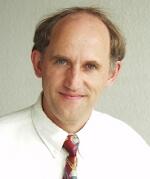
Arnd Poetzsch-Heffter is heading the Software Technology Group at the
University of Kaiserslautern. His main research interest is in
object-oriented programming, language-based software tools, component
technology, and automated composition, as well as in specification and
verification techniques for programs and components. He is the author
of a textbook on object-oriented programming, has published about 50
articles in journals and conference proceedings. He serves as an expert
for the German National Science Foundation and the Dutch National
Science Foundation. His professional services include several positions
in the German Informatics Association (GI) and participations in a
number of program committees as member and chair. He is a member of the
IFIP working group 2.4 “Software Implementation Technology”.
Poetzsch-Heffter supervised 4 PhD theses, is currently supervising 8
PhD students, and acted as a reviewer/opponent in 12 other cases.
Arend Rensink, Universiteit Twente, The Netherlands
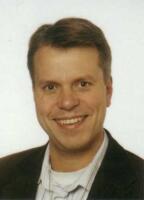
Arend Rensink obtained
his PhD in 1993 at the University of Twente. Since then he has worked
as an Akademischer Rat at the University of Hildesheim and, since 1998,
as an Associate Professor at the University of Twente, where he was
appointed full professor in 2010. His expertise is in process algebra
and graph transformation. He has supervised 5 PhD students since 2000.
Bernhard Steffen, Technical University of Dortmund, Germany
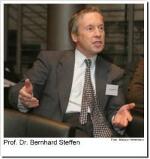
Bernhard Steffen graduated in Mathematics (1983) and obtained a PhD in Computer Science (1987)
from the Christian-Albrechts Universität Kiel (D), then he was Research Fellow at the Laboratory for
Foundations of Computer Science (LFCS) in Edinburgh and Researcher at the University of Aarhus
(Denmark). 1990 he became Associate Professor for Distributed Systems at RWTH Aachen, and 1993
Full Professor for Programming Systems at the University of Passau. Since 1997 he holds the Chair of
Programming Systems and Compiler Construction at the University of Dortmund, where he was Dean
of Computer Science between 2002 and 2004 and member of the Senate since January 2006.
Peter Van Roy, Université Catholique de Louvain, Belgium
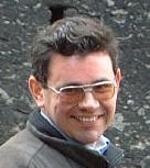
Peter Van Roy is full professor in the ICTEAM Institute (Information and
Communication Technologies, Electronics, and Applied Mathematics) at the
Université catholique de Louvain, where he heads the Programming Languages
and Distributed Computing Research Group. He has an Engineering degree from
the Vrije Universiteit Brussel (1983), M.S. and Ph.D. degrees from the
University of California, Berkeley (1984 and 1990) and a French Habilitation
à Diriger des Recherches from the Université Paris Diderot (1996). He
has participated in numerous European and national projects and has published
more than 60 scientific papers in logic programming, computer architecture,
distributed programming, human-computer interfaces, constraint programming,
peer-to-peer networks, programming languages, programming education, language
security, and self-managing systems. He was involved in two start-up companies,
Xenologic and Dynamic Software, and developed and patented FractaSketch, a
commercial Macintosh application for graphic design based on fractal geometry.
In his Ph.D., he was the first to build a compiler for the logic programming
language Prolog that generates code with the same run-time efficiency as
low-level languages such as C. He is one of the developers of the Mozart
Programming System, which implements the Oz multi-paradigm programming language,
and a designer of the network-transparent distribution model of Oz. He is
author of the textbook "Concepts, Techniques, and Models of Computer Programming",
published in 2004 by MIT Press. He is currently working on programming languages
and systems for large-scale distributed computing.
 Eerke Boiten received his PhD in specification and transformation of programs, Nijmegen (NL) 1992.
He is now working as a Senior Lecturer at Kent (UK) in formal methods
(Z, process algebra, relations),
particularly refinement, viewpoint specification, and more recently
working towards cryptography. He supervised 3 PhDs, and examined
several more. He is organiser of the Refinement workshop series, and a
long-standing member of Mathematics of Program Construction and
Integrated Formal Methods communities. He is an editor of the Formal Aspects of Computing journal, and leads the UK CryptoForma network on Cryptography and Formal Methods, as well as the University of Kent's Cyber Security centre.
Eerke Boiten received his PhD in specification and transformation of programs, Nijmegen (NL) 1992.
He is now working as a Senior Lecturer at Kent (UK) in formal methods
(Z, process algebra, relations),
particularly refinement, viewpoint specification, and more recently
working towards cryptography. He supervised 3 PhDs, and examined
several more. He is organiser of the Refinement workshop series, and a
long-standing member of Mathematics of Program Construction and
Integrated Formal Methods communities. He is an editor of the Formal Aspects of Computing journal, and leads the UK CryptoForma network on Cryptography and Formal Methods, as well as the University of Kent's Cyber Security centre.
 Mark van den Brand is a full professor of Software Engineering and
Technology at TU/e in the Department of Mathematics and Computer Science.
He is scientific director of the research laboratory LaQuSo.
His current research activities are on generic language technology,
model driven engineering and reverse engineering. He was keynote speaker at
the Software Language Engineering (SLE2008) conference
which combines the research fields of model driven engineering and language technology.
He was and is member of PCs on workshops and conferences related to software
engineering, language engineering, rewriting, reverse engineering and maintenance.
He initiated the special issues of Science of Computer Programming devoted to academic
software development (Experimental Software and Toolkits (EST)), and was four times
guest editor (2007, 2008, 2009, 2011) of these EST special issues. Since
May 2009 he is visiting professor at Royal Holloway, University of London.
He is member of the editorial board of the journal of Science of Computer Programming,
Central European Journal for Computer Science, and Journal of Software Engineering and
Applications. He is invited as lecturer at SFM-12:MDE 12th International School on Formal
Methods for the Design of Computer, Communication and Software Systems: Model-Driven
Engineering in Bertinoro. He is president of European Association of Programming Languages
and Systems.
Mark van den Brand is a full professor of Software Engineering and
Technology at TU/e in the Department of Mathematics and Computer Science.
He is scientific director of the research laboratory LaQuSo.
His current research activities are on generic language technology,
model driven engineering and reverse engineering. He was keynote speaker at
the Software Language Engineering (SLE2008) conference
which combines the research fields of model driven engineering and language technology.
He was and is member of PCs on workshops and conferences related to software
engineering, language engineering, rewriting, reverse engineering and maintenance.
He initiated the special issues of Science of Computer Programming devoted to academic
software development (Experimental Software and Toolkits (EST)), and was four times
guest editor (2007, 2008, 2009, 2011) of these EST special issues. Since
May 2009 he is visiting professor at Royal Holloway, University of London.
He is member of the editorial board of the journal of Science of Computer Programming,
Central European Journal for Computer Science, and Journal of Software Engineering and
Applications. He is invited as lecturer at SFM-12:MDE 12th International School on Formal
Methods for the Design of Computer, Communication and Software Systems: Model-Driven
Engineering in Bertinoro. He is president of European Association of Programming Languages
and Systems.
 Paolo Ciancarini is
Professor of Computer Science at the University of Bologna, where he
lectures on Software Architecture and Engineering in the Faculty of
Sciences. He is member of the Faculty of the PhD School in Computer
Science and since 2008 chair of the Joint Schools in Computer Science
and Technologies at the University of Bologna Alma Mater. He is also
member-at-large of the Faculty of Computer Sciences and Technologies at
the IMT Institute of Advanced Studies in Lucca. He is since Dec 2006
the Director of the Consorzio Interuniversitario per l'Informatica
(CINI), a national consortium of 34 Italian universities, whose mission
is basic or industry-oriented research projects on Information and
Communication Technologies.
Paolo Ciancarini is
Professor of Computer Science at the University of Bologna, where he
lectures on Software Architecture and Engineering in the Faculty of
Sciences. He is member of the Faculty of the PhD School in Computer
Science and since 2008 chair of the Joint Schools in Computer Science
and Technologies at the University of Bologna Alma Mater. He is also
member-at-large of the Faculty of Computer Sciences and Technologies at
the IMT Institute of Advanced Studies in Lucca. He is since Dec 2006
the Director of the Consorzio Interuniversitario per l'Informatica
(CINI), a national consortium of 34 Italian universities, whose mission
is basic or industry-oriented research projects on Information and
Communication Technologies.
 Stefano Crespi Reghizzi is a professor in the Dipartimento di Elettronica e Informazione of Politecnico di Milano. In the course of a scientific life devoted to computer science, he has participated and contributed to several research initiatives that have punctuated the advances of this discipline: the ARPA network (later to become Internet), developments of early programming languages, formal models of artificial and to some extent of natural languages, language acquisition algorithms, picture languages, microprocessor technology, and languages and language translators for parallel processing. His current research interests are centred on the theory of formal languages and automata and on their applications in various directions of interest for engineering and natural sciences.He has written many scientific papers and the textbooks Linguaggi formali nelle scienze della comunicazione and Formal languages and compilation.After graduation in Electronics Engineering at Politecnico di Milano,, he received the Ph.D. in Computer Science from University of California at Los Angeles, then was appointed as professor by Università di Pisa. For many years he has chaired the PhD programme in information technology at Politecnico di Milano.
Stefano Crespi Reghizzi is a professor in the Dipartimento di Elettronica e Informazione of Politecnico di Milano. In the course of a scientific life devoted to computer science, he has participated and contributed to several research initiatives that have punctuated the advances of this discipline: the ARPA network (later to become Internet), developments of early programming languages, formal models of artificial and to some extent of natural languages, language acquisition algorithms, picture languages, microprocessor technology, and languages and language translators for parallel processing. His current research interests are centred on the theory of formal languages and automata and on their applications in various directions of interest for engineering and natural sciences.He has written many scientific papers and the textbooks Linguaggi formali nelle scienze della comunicazione and Formal languages and compilation.After graduation in Electronics Engineering at Politecnico di Milano,, he received the Ph.D. in Computer Science from University of California at Los Angeles, then was appointed as professor by Università di Pisa. For many years he has chaired the PhD programme in information technology at Politecnico di Milano.
 Kei received his M.Sc. in
Computation in 1988 from Oxford University and Ph.D. from Glasgow
University in 1994, both in topical areas of functional programming,
specifically formally-based program analysis and transformation.
For the last 15 years he has worked as a computer scientist at Los
Alamos National Laboratory in a variety of areas including functional
language implementation, object-oriented design and implementation,
system/application performance analysis and modeling, systems, and
exploitation of accelerated architectures, all in the context of
large-scale parallel computing.
Kei received his M.Sc. in
Computation in 1988 from Oxford University and Ph.D. from Glasgow
University in 1994, both in topical areas of functional programming,
specifically formally-based program analysis and transformation.
For the last 15 years he has worked as a computer scientist at Los
Alamos National Laboratory in a variety of areas including functional
language implementation, object-oriented design and implementation,
system/application performance analysis and modeling, systems, and
exploitation of accelerated architectures, all in the context of
large-scale parallel computing.
 Mariangiola Dezani is full professor of at the University of Torino since 1981. She is member of IFIP W.G.2.2 and of the "Academia Europaea". She is editor of "Information and Computation" and of "The Computer Journal". Her research followed a clear path since the beginning, proposing typing systems along the evolution of programming languages: from lambda-calculus models in the 80's, to object orientation in the 90's, to more dynamic and distributed contexts with behavioural types for web services. Her current research activity is mainly devoted to the study of behavioural types for assuring safety and liveness of communication protocols and the design of type systems for expressing properties of biological systems.
Mariangiola Dezani is full professor of at the University of Torino since 1981. She is member of IFIP W.G.2.2 and of the "Academia Europaea". She is editor of "Information and Computation" and of "The Computer Journal". Her research followed a clear path since the beginning, proposing typing systems along the evolution of programming languages: from lambda-calculus models in the 80's, to object orientation in the 90's, to more dynamic and distributed contexts with behavioural types for web services. Her current research activity is mainly devoted to the study of behavioural types for assuring safety and liveness of communication protocols and the design of type systems for expressing properties of biological systems.
 BSc Physics,
University of Basque Country (Bilbao, Spain), 1985. PhD
Informatics/Computer Science, University of Deusto (Bilbao, Spain),
1996. Assistant professor 1987, associate professor 2000, University of
Deusto. Formerly Head of the Department of Computing, Engineering
Faculty, University of Deusto (2005 to 2012). Supervised 3 PhD theses,
presented 1999, 2004 and 2004 (last two in collaboration with other
colleagues).
BSc Physics,
University of Basque Country (Bilbao, Spain), 1985. PhD
Informatics/Computer Science, University of Deusto (Bilbao, Spain),
1996. Assistant professor 1987, associate professor 2000, University of
Deusto. Formerly Head of the Department of Computing, Engineering
Faculty, University of Deusto (2005 to 2012). Supervised 3 PhD theses,
presented 1999, 2004 and 2004 (last two in collaboration with other
colleagues).
 Marko van Eekelen did
his Ph.D. in Computer Science in 1988 in Nijmegen under supervision of
Professor Barendregt. His research area is in the application of formal
methods for Software Analysis, varying from correctness of functional
properties to verification of non-functional properties such as
liveness and resource consumption. He is scientific director of the
Nijmegen Laboratory for Quality Software (LaQuSo) and he is chairing
the Steering Committee of the Trends in Functional Programming
Symposium series which particularly encourages young researchers to
present their work. Furthermore, he has been lecturing at several Ph.D.
schools. For more info on his scientific publications and Ph.D.
supervision experience see http://www.cs.ru.nl/M.vanEekelen.
Marko van Eekelen did
his Ph.D. in Computer Science in 1988 in Nijmegen under supervision of
Professor Barendregt. His research area is in the application of formal
methods for Software Analysis, varying from correctness of functional
properties to verification of non-functional properties such as
liveness and resource consumption. He is scientific director of the
Nijmegen Laboratory for Quality Software (LaQuSo) and he is chairing
the Steering Committee of the Trends in Functional Programming
Symposium series which particularly encourages young researchers to
present their work. Furthermore, he has been lecturing at several Ph.D.
schools. For more info on his scientific publications and Ph.D.
supervision experience see http://www.cs.ru.nl/M.vanEekelen.
 Maribel Fernandez is Professor of Computer Science at King's College
London. She obtained her PhD in 1993 from the University of Paris-Sud,
and her Habilitation in 2000 while she was a Maitre de conference
at the Ecole Normale Superieure in Paris. Her research interests
include computation models, specification and programming languages,
and the development of tools for the analysis and verification of
complex systems. Her expertise is in type systems, semantics and
foundations of security, using rewrite-based techniques (term and
graph rewriting, and lambda-calculus).
Maribel Fernandez is Professor of Computer Science at King's College
London. She obtained her PhD in 1993 from the University of Paris-Sud,
and her Habilitation in 2000 while she was a Maitre de conference
at the Ecole Normale Superieure in Paris. Her research interests
include computation models, specification and programming languages,
and the development of tools for the analysis and verification of
complex systems. Her expertise is in type systems, semantics and
foundations of security, using rewrite-based techniques (term and
graph rewriting, and lambda-calculus).
 Giorgio Ghelli is Full
Professor in Computer Science, at Pisa University, since September
2002. He was Visiting Professor at Ecole Normal Supérieure Paris
(1993), at Microsoft Research Center, Cambridge (UK) (1998), and at
Microsoft Co. (Redmond, USA, 2005). His research interests are: design
and implementation of database languages; type theory, and its
application to the previous theme; foundations of object-oriented
languages; languages and peer-to-peer systems to query semi-structured
and XML data. He has been advisor for five PhD students and part of the
evaluation committee of more than ten PhD thesis, in different European
countries.
Giorgio Ghelli is Full
Professor in Computer Science, at Pisa University, since September
2002. He was Visiting Professor at Ecole Normal Supérieure Paris
(1993), at Microsoft Research Center, Cambridge (UK) (1998), and at
Microsoft Co. (Redmond, USA, 2005). His research interests are: design
and implementation of database languages; type theory, and its
application to the previous theme; foundations of object-oriented
languages; languages and peer-to-peer systems to query semi-structured
and XML data. He has been advisor for five PhD students and part of the
evaluation committee of more than ten PhD thesis, in different European
countries.
 Stefan Gruner received
his MSc (Dipl.-Inf.) in the year 1996 and his PhD (Dr.rer.nat.) in the
year 1999, both from the RWTH Aachen, Germany. As far as progamming
languages -the theme of EAPLS- are concerned, Stefan Gruner's work so
far has always been more on the software engineering side and less on
the side of theoretical informatics. For his MSc, Stefan Gruner did an
empirical study on the benefits of deforestation in the context of
functional languages; (supervisors: Peter Hartel and Herbert Kuchen).
For his PhD, Stefan Gruner dealt with graphical languages for software
system specifications; (supervisor: Manfred Nagl). During his Post-Doc
time at the university of Southampton, Stefan Gruner made contributions
to the implementation of a partial evaluation system in PROLOG;
(project leader: Michael Leuschel). More recently at the University of
Pretoria, Stefan Gruner has contributed to the development of a new
operator for optional parallelism in the process specification language
CSP; (project leader: Derrick Kourie). In his role as Senior Lecturer
and manager of the SSFM research group at the University of Pretoria,
Stefan Gruner is currently supervising 4 PhD-students (May Chan, Johan
van Zyl, Mushtaq Ahmad and Fritz Solms) in the area of Software
Engineering and Formal
Methods. Stefan Gruner also acted as External Examiner to several other
PhD-candidates, most notably for the University of Bordeaux (France) in
the area of distributed systems specifications. Stefan Gruner is not
only a member of EAPLS, but also of EASST and FME since many years.
Stefan Gruner received
his MSc (Dipl.-Inf.) in the year 1996 and his PhD (Dr.rer.nat.) in the
year 1999, both from the RWTH Aachen, Germany. As far as progamming
languages -the theme of EAPLS- are concerned, Stefan Gruner's work so
far has always been more on the software engineering side and less on
the side of theoretical informatics. For his MSc, Stefan Gruner did an
empirical study on the benefits of deforestation in the context of
functional languages; (supervisors: Peter Hartel and Herbert Kuchen).
For his PhD, Stefan Gruner dealt with graphical languages for software
system specifications; (supervisor: Manfred Nagl). During his Post-Doc
time at the university of Southampton, Stefan Gruner made contributions
to the implementation of a partial evaluation system in PROLOG;
(project leader: Michael Leuschel). More recently at the University of
Pretoria, Stefan Gruner has contributed to the development of a new
operator for optional parallelism in the process specification language
CSP; (project leader: Derrick Kourie). In his role as Senior Lecturer
and manager of the SSFM research group at the University of Pretoria,
Stefan Gruner is currently supervising 4 PhD-students (May Chan, Johan
van Zyl, Mushtaq Ahmad and Fritz Solms) in the area of Software
Engineering and Formal
Methods. Stefan Gruner also acted as External Examiner to several other
PhD-candidates, most notably for the University of Bordeaux (France) in
the area of distributed systems specifications. Stefan Gruner is not
only a member of EAPLS, but also of EASST and FME since many years.
 Kevin Hammond is a Professor in Computer Science, in the School of
Computer Science, at the University of St. Andrews, St. Andrews,
Scotland, where he leads the Functional Programming research group.
He is also an Honorary Professor at Heriot-Watt University, Edinburgh,
Scotland. His main interests are in cost modelling, parallelism and real-time
and embedded systems.
Kevin Hammond is a Professor in Computer Science, in the School of
Computer Science, at the University of St. Andrews, St. Andrews,
Scotland, where he leads the Functional Programming research group.
He is also an Honorary Professor at Heriot-Watt University, Edinburgh,
Scotland. His main interests are in cost modelling, parallelism and real-time
and embedded systems.
 Martin Hofmann received his PhD in type theory and formal verification, at the Univesity of Edinburgh in 1995. His topic was extensional constructs in intensional type theory and explored ways for improving the way type theory based proof assistants deal with equality. Since 2001 he is a full professor at the Institute of Informatics at LMU Munich and heads the Theoretical Computer Science group. His current interests are in type-based verification and certification, in particular type-based resource analysis. He also studies interactions between programming languages and computational complexity. Martin has supervised 10 PhD theses and was invited lecturer on several international PhD schools, e.g. Marktoberdorf and Palmse. He is a founding member and site leader of the PUMA graduate programme ("analysis of programs and models", puma.in.tum.de) run jointly between Technical University Munich and LMU Munich and funded by the German Research Association.
Martin Hofmann received his PhD in type theory and formal verification, at the Univesity of Edinburgh in 1995. His topic was extensional constructs in intensional type theory and explored ways for improving the way type theory based proof assistants deal with equality. Since 2001 he is a full professor at the Institute of Informatics at LMU Munich and heads the Theoretical Computer Science group. His current interests are in type-based verification and certification, in particular type-based resource analysis. He also studies interactions between programming languages and computational complexity. Martin has supervised 10 PhD theses and was invited lecturer on several international PhD schools, e.g. Marktoberdorf and Palmse. He is a founding member and site leader of the PUMA graduate programme ("analysis of programs and models", puma.in.tum.de) run jointly between Technical University Munich and LMU Munich and funded by the German Research Association.
 Paul Klint is
head of the software engineering department at Centrum
Wiskunde & Informatica (CWI, the Dutch national research center for
computer science and mathematics) and professor in computer science
at the University of Amsterdam. He is also founding-president and now
treasurer of the European
Association for Programming Languages and Systems (EAPLS), former chair
of
the national advisory boards on Computer Science and co-founder of
the Software Improvement Group (SIG), a CWI spinoff company. He holds a
MSc in Mathematics from the
University of Amsterdam (1973) and a PhD in Computer Science from the
Technical
University Eindhoven (1982). He (co)authored three books and has
published over hundred scientific articles. He was advisor of over 30
dissertations and over 100 master's theses. He has consulted for
companies and governments worldwide. His research interests include
generic language technology, domain-specific languages,
software renovation, and technology transfer. Download his favourite
software from http://www.rascal-mpl.org
and http://www.meta-environment.org.
Paul Klint is
head of the software engineering department at Centrum
Wiskunde & Informatica (CWI, the Dutch national research center for
computer science and mathematics) and professor in computer science
at the University of Amsterdam. He is also founding-president and now
treasurer of the European
Association for Programming Languages and Systems (EAPLS), former chair
of
the national advisory boards on Computer Science and co-founder of
the Software Improvement Group (SIG), a CWI spinoff company. He holds a
MSc in Mathematics from the
University of Amsterdam (1973) and a PhD in Computer Science from the
Technical
University Eindhoven (1982). He (co)authored three books and has
published over hundred scientific articles. He was advisor of over 30
dissertations and over 100 master's theses. He has consulted for
companies and governments worldwide. His research interests include
generic language technology, domain-specific languages,
software renovation, and technology transfer. Download his favourite
software from http://www.rascal-mpl.org
and http://www.meta-environment.org.
 Jens Knoop is a full professor at the Faculty of Informatics at the Vienna
University of Technology, Austria. He is the managing director
(Institutsvorstand) of the Institute of Computer Languages and the head of
the group Programming Languages and Compilers. He has previously held
positions at the universities of Hagen, Dortmund, Oldenburg, Passau, and
Kiel, Germany. His research interests include programming languages and
compilers with an emphasis on formal methods, tools and algorithms for
static analysis, verification, optimizing and verifying compilation for
high-performance and real-time computing, general purpose and embedded
processors and systems.
Jens Knoop is a full professor at the Faculty of Informatics at the Vienna
University of Technology, Austria. He is the managing director
(Institutsvorstand) of the Institute of Computer Languages and the head of
the group Programming Languages and Compilers. He has previously held
positions at the universities of Hagen, Dortmund, Oldenburg, Passau, and
Kiel, Germany. His research interests include programming languages and
compilers with an emphasis on formal methods, tools and algorithms for
static analysis, verification, optimizing and verifying compilation for
high-performance and real-time computing, general purpose and embedded
processors and systems.
 Tiziana Margaria has broad experience in the application of formal methods
for high assurance systems with an emphasis on functional verification,
reliability, and compliance of complex heterogeneous systems. Her
experience was obtained through major industrial projects where she won
the European IT Award in 1996, and a start-up competition in 2001, through
many consulting engagements, and as founder and CEO of startup companies
including METAFrame Technologies GmbH and miAamics GmbH.
Her current research focuses on advanced service engineering techniques
supporting reliability and compliance through a model-driven version of
service-oriented development called xMDD (eXtreme Model Driven Design)
and the embedding of selected formal methods in the development platform.
Tiziana Margaria has broad experience in the application of formal methods
for high assurance systems with an emphasis on functional verification,
reliability, and compliance of complex heterogeneous systems. Her
experience was obtained through major industrial projects where she won
the European IT Award in 1996, and a start-up competition in 2001, through
many consulting engagements, and as founder and CEO of startup companies
including METAFrame Technologies GmbH and miAamics GmbH.
Her current research focuses on advanced service engineering techniques
supporting reliability and compliance through a model-driven version of
service-oriented development called xMDD (eXtreme Model Driven Design)
and the embedding of selected formal methods in the development platform.
 Greg Michaelson is Professor of Computer Science at Heriot-Watt University in Scotland and a member of the EAPLS Board. His research lies in the broad area of formally motivated computing with a strong focus on the design, implementation and analysis of functional programming languages for multi-processor systems. Most recently, he has been collaborating on critiques of proposed formal and physical models of computability that attempt to transcend the limits of Turing-complete systems.
Greg Michaelson is Professor of Computer Science at Heriot-Watt University in Scotland and a member of the EAPLS Board. His research lies in the broad area of formally motivated computing with a strong focus on the design, implementation and analysis of functional programming languages for multi-processor systems. Most recently, he has been collaborating on critiques of proposed formal and physical models of computability that attempt to transcend the limits of Turing-complete systems.
 Alan Mycroft is Professor of Computing in the Computer
Laboratory of
Cambridge University;
he is also a fellow at Robinson
College. At
the Computer Laboratory he is part of the Cambridge
Programming Research Group.
His research interests span an arc from semantic
models of programming languages to actually building optimising
compilers.
A core interest is that of static analysis of programs to
extract properties of their run-time behaviour. Such properties can be
used to enable optimisations or to facilitate ``compile-time
debugging''. His PhD created the subject of ``strictness analysis''
when he argued that apparent run-time inefficiencies in modern
high-level languages can often be removed by program analysis and
optimisation phases. Other work has encompassed type-based
decompilation and also language and compilation issues for ``Silicon
Compilers'', i.e.\ compiling specifications directly to hardware.
In 2005/06 he held a ``Visiting Faculty'' position with Intel
Research Cambridge
involving developing languages
and techniques for compiling to `multi-core' processors; this
research illuminates the benefits of type-like systems of program
analysis at enabling programmers to express and manage their implicit
treaty with a compiler
(``optimise as much as you can, but don't step over the line'').
Alan Mycroft is Professor of Computing in the Computer
Laboratory of
Cambridge University;
he is also a fellow at Robinson
College. At
the Computer Laboratory he is part of the Cambridge
Programming Research Group.
His research interests span an arc from semantic
models of programming languages to actually building optimising
compilers.
A core interest is that of static analysis of programs to
extract properties of their run-time behaviour. Such properties can be
used to enable optimisations or to facilitate ``compile-time
debugging''. His PhD created the subject of ``strictness analysis''
when he argued that apparent run-time inefficiencies in modern
high-level languages can often be removed by program analysis and
optimisation phases. Other work has encompassed type-based
decompilation and also language and compilation issues for ``Silicon
Compilers'', i.e.\ compiling specifications directly to hardware.
In 2005/06 he held a ``Visiting Faculty'' position with Intel
Research Cambridge
involving developing languages
and techniques for compiling to `multi-core' processors; this
research illuminates the benefits of type-like systems of program
analysis at enabling programmers to express and manage their implicit
treaty with a compiler
(``optimise as much as you can, but don't step over the line'').
 Catuscia
Palamidessi got his PhD in Computer Science at the University of Pisa.
She has been professor in Computer Science at the University of Genova
(Italy) and at Penn State University (USA). Currently she is Director
of Research at INRIA (France). Her research interests include the
Foundations of Programming Languages, Concurrency Theory, Probabilistic
Aspects of Computation, Expressiveness of Concurrent Formalisms, and
Computer Security Foundations. She is particularly active in the
communities of CONCUR, FOSSACS, ESOP, ICALP Track B, QEST. She
has supervised several PhD students, particularly in the domains
of Process Calculi, Probabilistic Formalisms, and Probabilistic
and Information-Theoretic approaches to Anonymity and Information Flow.
Catuscia
Palamidessi got his PhD in Computer Science at the University of Pisa.
She has been professor in Computer Science at the University of Genova
(Italy) and at Penn State University (USA). Currently she is Director
of Research at INRIA (France). Her research interests include the
Foundations of Programming Languages, Concurrency Theory, Probabilistic
Aspects of Computation, Expressiveness of Concurrent Formalisms, and
Computer Security Foundations. She is particularly active in the
communities of CONCUR, FOSSACS, ESOP, ICALP Track B, QEST. She
has supervised several PhD students, particularly in the domains
of Process Calculi, Probabilistic Formalisms, and Probabilistic
and Information-Theoretic approaches to Anonymity and Information Flow.
 Ricardo Peña is a full Professor in Computer Science at the Computer Systems and Computation Department of the Complutense University of Madrid. He received his PhD in Computer Science in 1984 from the Polytechnical University of Catalonia (Spain). Up to 1991, he was Associate Professor at this university, and prior to that he worked for two companies in the telecommunication and clothing industries as project leader of several software developments. His research interests are formal methods, static analysis, functional language design and implementation, functional-parallel programming, program certification, and proof-carrying code. He was the Spanish responsible, together with Rita Loogen at the Marburg University (Germany), of the group developing the functional-parallel language Eden, a parallel derivative of Haskell. He belongs to the Steering Committees of the conferences IFL (Implementation and Application of Functional Languages) and TFP (Trends in Functional Programming), and belong or has belonged to the Program Committees of several conferences related to declarative languages and static analysis. He is the author of two textbooks for undergraduate Computing Engineers, and co-author of more than 50 international peer-reviewed papers.
Ricardo Peña is a full Professor in Computer Science at the Computer Systems and Computation Department of the Complutense University of Madrid. He received his PhD in Computer Science in 1984 from the Polytechnical University of Catalonia (Spain). Up to 1991, he was Associate Professor at this university, and prior to that he worked for two companies in the telecommunication and clothing industries as project leader of several software developments. His research interests are formal methods, static analysis, functional language design and implementation, functional-parallel programming, program certification, and proof-carrying code. He was the Spanish responsible, together with Rita Loogen at the Marburg University (Germany), of the group developing the functional-parallel language Eden, a parallel derivative of Haskell. He belongs to the Steering Committees of the conferences IFL (Implementation and Application of Functional Languages) and TFP (Trends in Functional Programming), and belong or has belonged to the Program Committees of several conferences related to declarative languages and static analysis. He is the author of two textbooks for undergraduate Computing Engineers, and co-author of more than 50 international peer-reviewed papers.
 Arnd Poetzsch-Heffter is heading the Software Technology Group at the
University of Kaiserslautern. His main research interest is in
object-oriented programming, language-based software tools, component
technology, and automated composition, as well as in specification and
verification techniques for programs and components. He is the author
of a textbook on object-oriented programming, has published about 50
articles in journals and conference proceedings. He serves as an expert
for the German National Science Foundation and the Dutch National
Science Foundation. His professional services include several positions
in the German Informatics Association (GI) and participations in a
number of program committees as member and chair. He is a member of the
IFIP working group 2.4 “Software Implementation Technology”.
Poetzsch-Heffter supervised 4 PhD theses, is currently supervising 8
PhD students, and acted as a reviewer/opponent in 12 other cases.
Arnd Poetzsch-Heffter is heading the Software Technology Group at the
University of Kaiserslautern. His main research interest is in
object-oriented programming, language-based software tools, component
technology, and automated composition, as well as in specification and
verification techniques for programs and components. He is the author
of a textbook on object-oriented programming, has published about 50
articles in journals and conference proceedings. He serves as an expert
for the German National Science Foundation and the Dutch National
Science Foundation. His professional services include several positions
in the German Informatics Association (GI) and participations in a
number of program committees as member and chair. He is a member of the
IFIP working group 2.4 “Software Implementation Technology”.
Poetzsch-Heffter supervised 4 PhD theses, is currently supervising 8
PhD students, and acted as a reviewer/opponent in 12 other cases.
 Arend Rensink obtained
his PhD in 1993 at the University of Twente. Since then he has worked
as an Akademischer Rat at the University of Hildesheim and, since 1998,
as an Associate Professor at the University of Twente, where he was
appointed full professor in 2010. His expertise is in process algebra
and graph transformation. He has supervised 5 PhD students since 2000.
Arend Rensink obtained
his PhD in 1993 at the University of Twente. Since then he has worked
as an Akademischer Rat at the University of Hildesheim and, since 1998,
as an Associate Professor at the University of Twente, where he was
appointed full professor in 2010. His expertise is in process algebra
and graph transformation. He has supervised 5 PhD students since 2000.
 Bernhard Steffen graduated in Mathematics (1983) and obtained a PhD in Computer Science (1987)
from the Christian-Albrechts Universität Kiel (D), then he was Research Fellow at the Laboratory for
Foundations of Computer Science (LFCS) in Edinburgh and Researcher at the University of Aarhus
(Denmark). 1990 he became Associate Professor for Distributed Systems at RWTH Aachen, and 1993
Full Professor for Programming Systems at the University of Passau. Since 1997 he holds the Chair of
Programming Systems and Compiler Construction at the University of Dortmund, where he was Dean
of Computer Science between 2002 and 2004 and member of the Senate since January 2006.
Bernhard Steffen graduated in Mathematics (1983) and obtained a PhD in Computer Science (1987)
from the Christian-Albrechts Universität Kiel (D), then he was Research Fellow at the Laboratory for
Foundations of Computer Science (LFCS) in Edinburgh and Researcher at the University of Aarhus
(Denmark). 1990 he became Associate Professor for Distributed Systems at RWTH Aachen, and 1993
Full Professor for Programming Systems at the University of Passau. Since 1997 he holds the Chair of
Programming Systems and Compiler Construction at the University of Dortmund, where he was Dean
of Computer Science between 2002 and 2004 and member of the Senate since January 2006.
 Peter Van Roy is full professor in the ICTEAM Institute (Information and
Communication Technologies, Electronics, and Applied Mathematics) at the
Université catholique de Louvain, where he heads the Programming Languages
and Distributed Computing Research Group. He has an Engineering degree from
the Vrije Universiteit Brussel (1983), M.S. and Ph.D. degrees from the
University of California, Berkeley (1984 and 1990) and a French Habilitation
à Diriger des Recherches from the Université Paris Diderot (1996). He
has participated in numerous European and national projects and has published
more than 60 scientific papers in logic programming, computer architecture,
distributed programming, human-computer interfaces, constraint programming,
peer-to-peer networks, programming languages, programming education, language
security, and self-managing systems. He was involved in two start-up companies,
Xenologic and Dynamic Software, and developed and patented FractaSketch, a
commercial Macintosh application for graphic design based on fractal geometry.
In his Ph.D., he was the first to build a compiler for the logic programming
language Prolog that generates code with the same run-time efficiency as
low-level languages such as C. He is one of the developers of the Mozart
Programming System, which implements the Oz multi-paradigm programming language,
and a designer of the network-transparent distribution model of Oz. He is
author of the textbook "Concepts, Techniques, and Models of Computer Programming",
published in 2004 by MIT Press. He is currently working on programming languages
and systems for large-scale distributed computing.
Peter Van Roy is full professor in the ICTEAM Institute (Information and
Communication Technologies, Electronics, and Applied Mathematics) at the
Université catholique de Louvain, where he heads the Programming Languages
and Distributed Computing Research Group. He has an Engineering degree from
the Vrije Universiteit Brussel (1983), M.S. and Ph.D. degrees from the
University of California, Berkeley (1984 and 1990) and a French Habilitation
à Diriger des Recherches from the Université Paris Diderot (1996). He
has participated in numerous European and national projects and has published
more than 60 scientific papers in logic programming, computer architecture,
distributed programming, human-computer interfaces, constraint programming,
peer-to-peer networks, programming languages, programming education, language
security, and self-managing systems. He was involved in two start-up companies,
Xenologic and Dynamic Software, and developed and patented FractaSketch, a
commercial Macintosh application for graphic design based on fractal geometry.
In his Ph.D., he was the first to build a compiler for the logic programming
language Prolog that generates code with the same run-time efficiency as
low-level languages such as C. He is one of the developers of the Mozart
Programming System, which implements the Oz multi-paradigm programming language,
and a designer of the network-transparent distribution model of Oz. He is
author of the textbook "Concepts, Techniques, and Models of Computer Programming",
published in 2004 by MIT Press. He is currently working on programming languages
and systems for large-scale distributed computing.
